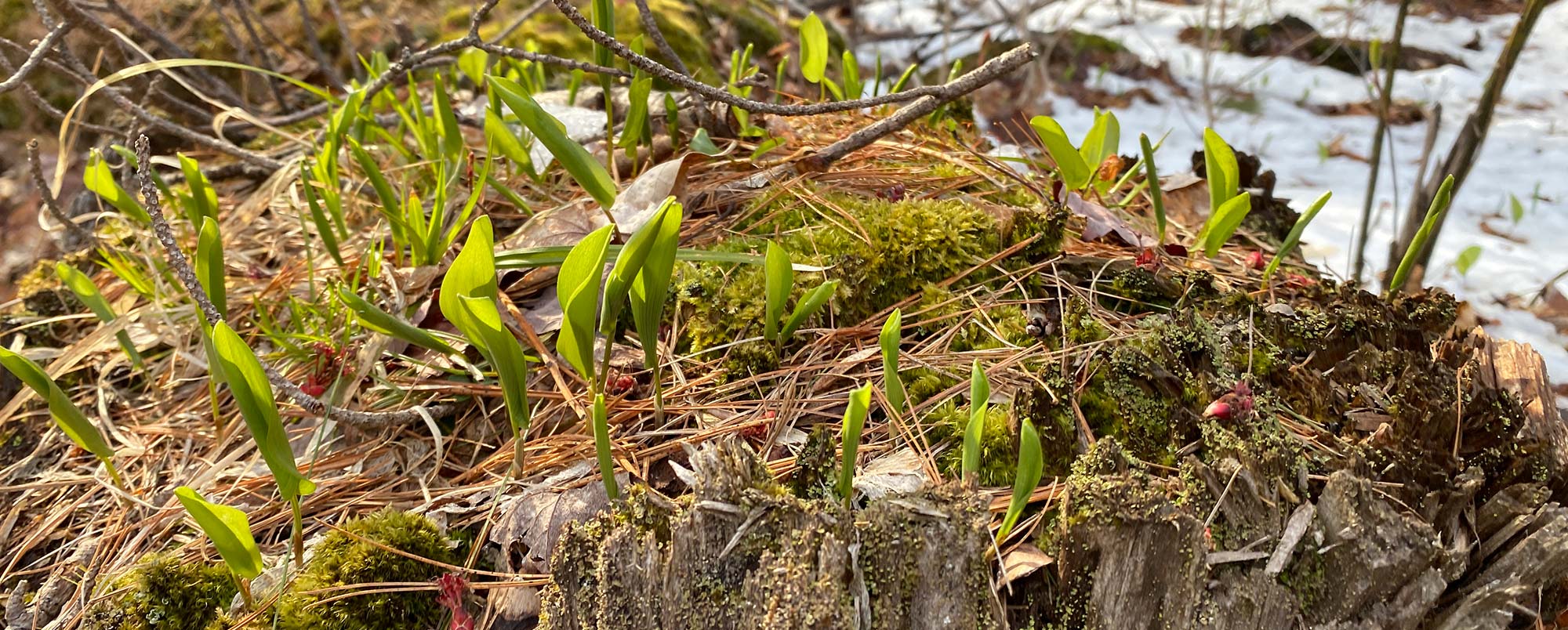The forests of New England and northern New York are among the most diverse and intricate ecosystems on the planet. With mind-boggling numbers of plant and animal species living in complex natural communities, these woodlands are truly an environmental treasure of national significance. They are also part of equally complex economic and political systems with an astonishing diversity of human values, land uses, and ownerships.
These natural and social systems are the result of dramatic changes in the past. From natural disasters like fires, hurricanes, and disease to major shifts in the economic and political forces driving forest use and ownership, these forests have been in continual transition.
Having studied the history of forest policy for nearly a half-century, I believe that the rate and degree of change is greater today than ever. And, because of the accelerating changes shaping these forests, increased disagreement over how they should be managed is inevitable. Witness the dramatic shifts in ownerships of large tracts of forest land, accelerated land fragmentation, debates over uses of state and national forests, and the appropriate role of government regulation and third-party certification.
Couple these policy debates with the impacts of accelerating changes in natural systems, and the stage is set for even more disagreement about the future of the region’s forests. Is climate change affecting the vigor and the species mix of our forests? Are acid rain and air pollutants from outside the region reducing forest growth? Will exotic plants, insects, and disease further reduce forest productivity?
These disagreements need not lead to conflict and polarization among those who live and work in the region. Avoiding conflict requires a region-wide forum for honest exchanges of viewpoints where people can speak and be heard, not unlike the town meetings of New England.
Never before has the need for such a forum been greater. Because of the complexity of both the forest and public policy landscapes, this forum must be open to a wide range of personal, professional, and political perspectives, while maintaining a commitment to conservation based on sustainable economic and environmental principles. And it must be a forum where people can learn as well as express opinions.
It was for these reasons that Northern Woodlands became a nonprofit in 2003, building upon our experience as a magazine for over a decade. It is the only regional publication of its kind in the nation, with over 15,000 loyal readers and genuine credibility among industry, government, and environmental leaders. Its success is evidenced by its exceptionally high renewal rate, advertisements from a broad range of interests, and the lively participation of its readers.
We are now poised to expand Northern Woodlands’ outreach throughout New England and New York. Our challenge is to significantly increase circulation and make the magazine and our other programs the centerpiece of a regional network for information, educational resources, and public dialogue, which will be essential to resolving complex forest policy issues.
This will require major new funding to expand our capability to increase in-depth reporting and research on issues that can be widely distributed through the magazine, books, syndicated columns (our weekly ecology columns are published in a dozen newspapers and reach 65,000 readers), our website, and other electronic media. Beyond these direct publishing programs, Northern Woodlands also offers workshops, field experiences, and research resources for journalists to encourage greater accuracy, balance, and fairness in the region’s newspaper, radio, and television coverage.
The directors and staff of Northern Woodlands welcome the chance to visit with individuals, foundations, and industry representatives to explain our plans and vision for the future. We think you’ll agree that supporting our work financially is a sound and rewarding tax-deductible investment for any person or organization who cares about the future of these magnificent forests.

